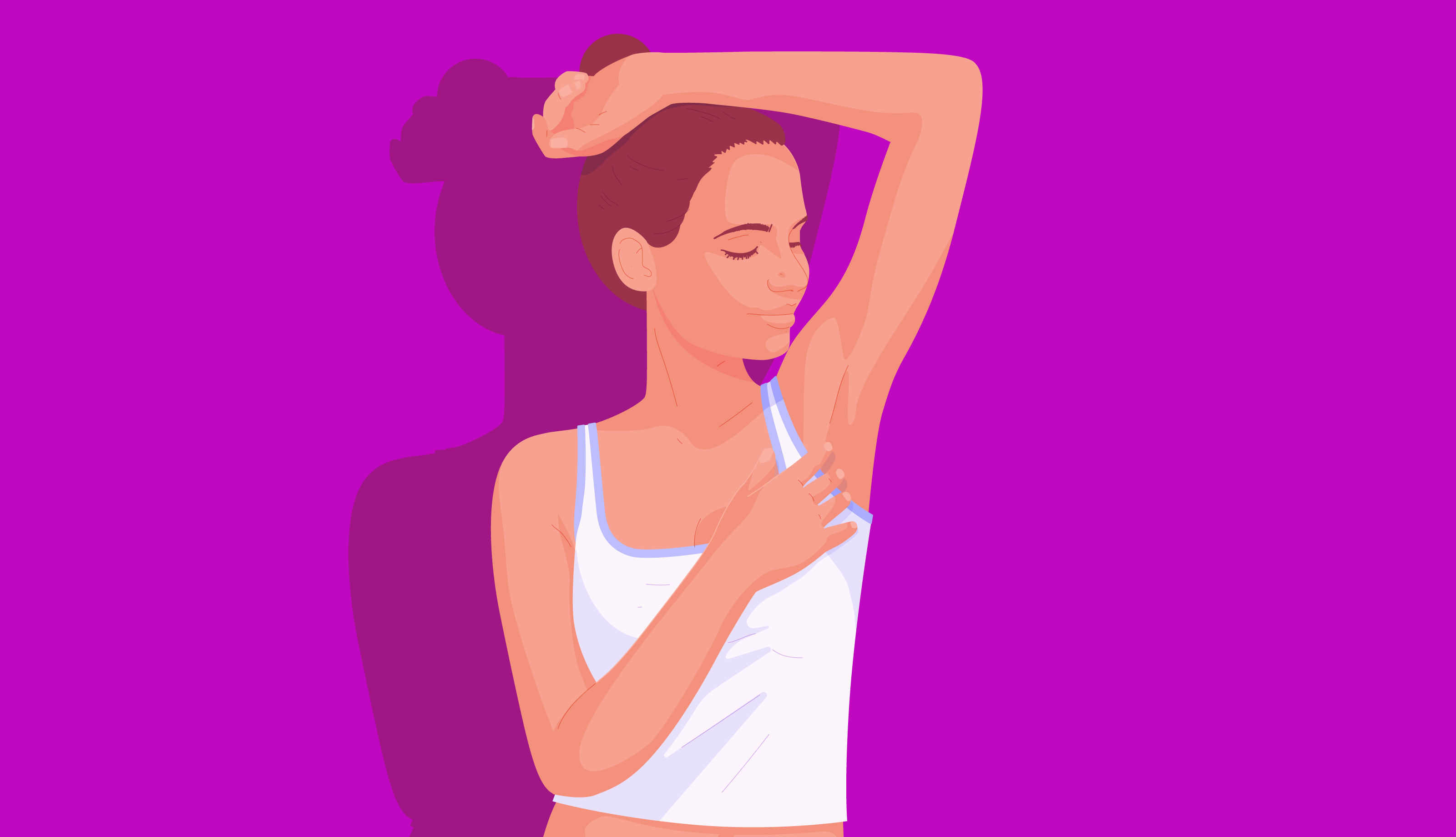Sweating is a normal function of the body, as are digestion and respiration. This is a way to cool the body. Beneath your skin is tiny sweat glands that are connected to your nervous system and controlled by your brain.
When your body warms up, perhaps due to sun exposure, intense exercise, or anxiety, the brain responds by releasing water into the skin, which eventually cools your body. Sweat itself is odorless because it is made of water. When it stays on the skin and is exposed to the elements, it attracts bacteria that cause bad odors.
To overcome the problem of bad odor you can shop for the natural deodorant spray which doesn't harm your skin as chemical products do.

Image Source: Google
places where sweat doesn't evaporate easily, such as in the armpits, the sweat stays on the skin and builds up bacteria.
In addition to the moist skin hidden under the arms, the armpits also have a special type of sweat glands, called apocrine glands. These glands secrete proteins and carbohydrates that contribute to sweating.
They are glands that develop during puberty and are stimulated by stress. Because they release special ingredients, they attract additional bacteria and, when they lie on the hidden skin, cause body odor.
To prevent such odors and discomfort, natural and synthetic deodorants are readily available.
Antiperspirant or deodorant? A common misconception is that antiperspirants and deodorants are the same things. Not really, but they both solve the body odor problem.
Antiperspirants are chemicals that prevent sweating. By using aluminum-based chemicals, they clog your pores so your underarms don't sweat. Deodorant deodorizes sweat and neutralizes bacteria.
However, deodorant does not prevent sweating, so if you are constantly sweating throughout the day, deodorant can be reused to prevent bacterial growth and bad odors. Whatever you choose, always take care of your skin when trying new products.
